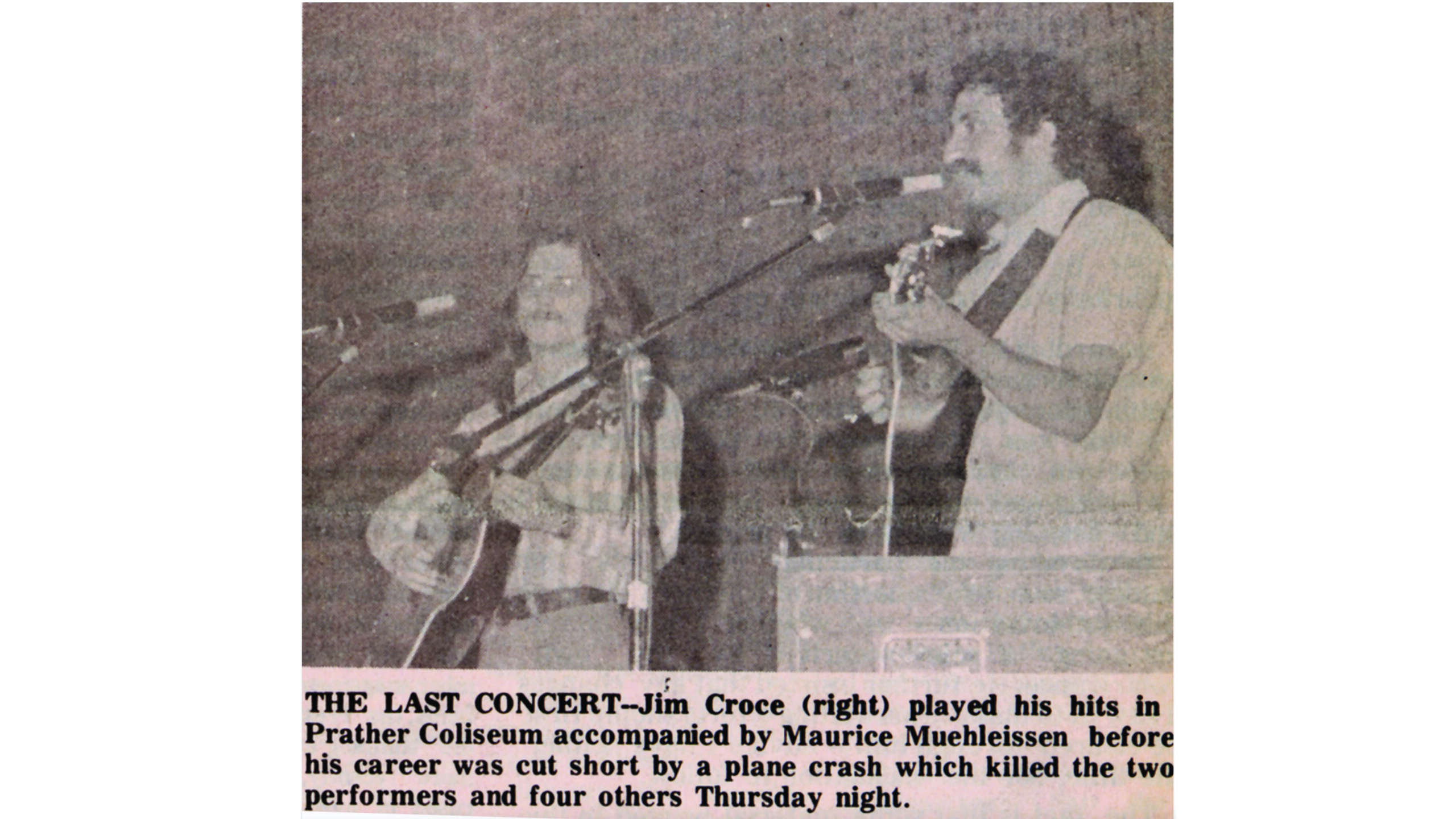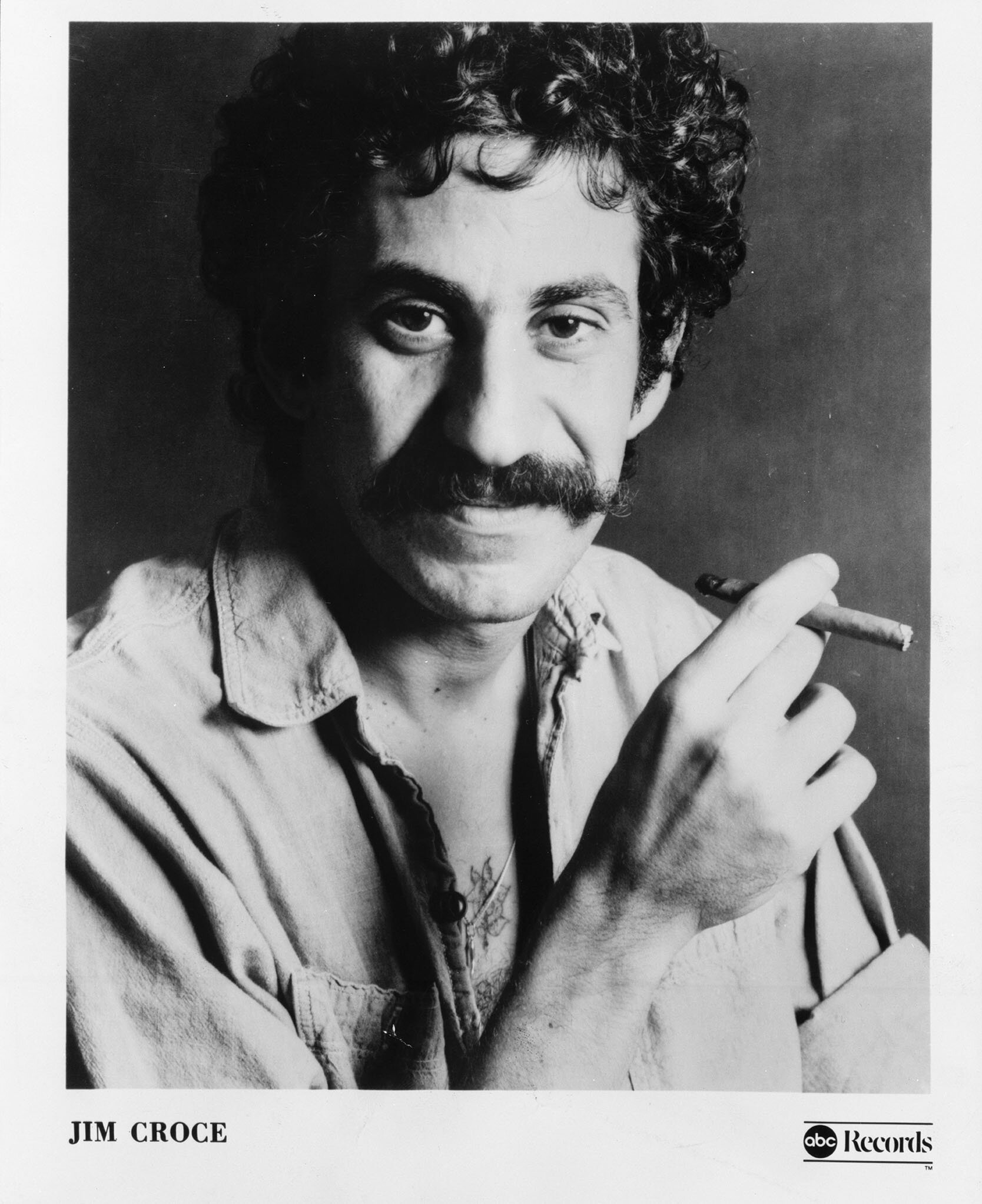Is Jim Croce Copyrighted? A Deep Dive Into The World Of Music Rights And Legacy
Have you ever wondered if Jim Croce's music is copyrighted? Well, buckle up because we’re about to embark on a journey into the world of music rights, copyright laws, and the legacy of this legendary artist. Jim Croce, with his soulful tunes and unforgettable lyrics, has left an indelible mark on the music industry. But what happens to his music now? Is it protected by copyright, and how does that affect fans and creators today? Let’s find out.
Jim Croce’s music has been serenading hearts for decades, but as time passes, questions arise about its legal status. Whether you’re a music enthusiast, a creator looking to use his songs, or just curious about the ins and outs of copyright, this article will uncover everything you need to know. Stick around, because we’re diving deep into the nitty-gritty details.
Music copyright can be a tricky subject, but understanding it is crucial if you want to respect the legacy of artists like Jim Croce. So, let’s break it down in a way that’s easy to digest, yet packed with valuable insights. Ready? Let’s go!
- Barbara Handler The Iconic Figure Who Shaped Modern Real Estate
- Joe Theismann Net Worth The Inside Scoop On The Nfl Legendrsquos Wealth
Biography of Jim Croce: The Man Behind the Music
Before we dive into the copyright aspect, let’s take a moment to appreciate the man whose music sparked this conversation. Jim Croce was more than just a singer-songwriter; he was a storyteller whose songs resonated with millions. Born on January 10, 1943, in Philadelphia, Pennsylvania, Jim grew up in a family that valued hard work and creativity.
His journey in the music industry wasn’t always smooth, but his perseverance paid off. By the early 1970s, Jim had become a household name with hits like “Bad, Bad Leroy Brown” and “Time in a Bottle.” Tragically, his life was cut short in a plane crash in 1973, but his music continues to inspire generations.
Jim Croce: A Quick Overview
| Full Name | James Joseph Croce |
|---|---|
| Birthdate | January 10, 1943 |
| Birthplace | Philadelphia, Pennsylvania |
| Occupation | Singer-Songwriter |
| Famous Songs | “Bad, Bad Leroy Brown,” “Time in a Bottle,” “You Don’t Mess Around with Jim” |
What Does Copyright Mean for Music?
Alright, let’s get down to business. Copyright is basically a legal protection that gives creators exclusive rights to their work. When it comes to music, this means the songwriter or their estate gets to decide who can use their songs, how they can be used, and under what conditions.
- Hugh Hendry The Maverick Investor Redefining Financial Wisdom
- Adam Curry The Man Who Shaped The Podcasting Revolution
Now, when we talk about Jim Croce, his music falls under copyright law because it was created during a time when these protections were already in place. This means that if you want to use his songs, you’ll likely need permission from the rights holders, which in this case would be his estate or the publishing company representing them.
Key Aspects of Music Copyright
- Exclusive Rights: Copyright holders have the right to reproduce, distribute, perform, and create derivative works.
- Duration: In most cases, copyright lasts for the life of the author plus 70 years.
- Enforcement: Copyright infringement can lead to legal consequences, so it’s important to respect these rights.
Is Jim Croce’s Music Under Copyright?
The short answer is yes, Jim Croce’s music is still under copyright. Since he passed away in 1973, his works are protected for 70 years after his death, which means they won’t enter the public domain until 2043. Until then, using his songs without permission could land you in hot water.
But here’s the thing: copyright doesn’t just apply to the songs themselves. It also covers things like lyrics, arrangements, and even the sound recordings. So, if you’re thinking about covering one of his songs or sampling a beat, you’ll need to tread carefully.
How Long Does Copyright Last?
Copyright duration varies depending on the country and the type of work. In the U.S., for example, works created after 1978 are protected for the life of the author plus 70 years. For works made for hire or anonymous works, the term is 95 years from publication or 120 years from creation, whichever comes first.
Understanding Public Domain
Once a work’s copyright expires, it enters the public domain. This means anyone can use it without permission. However, as we’ve established, Jim Croce’s music isn’t there yet. But what exactly does public domain mean for music?
In the public domain, you can freely perform, record, or even remix songs without worrying about legal issues. This opens up a world of possibilities for creators who want to pay homage to their favorite artists or experiment with classic tunes.
Benefits of Public Domain Music
- Creative Freedom: You can use the music however you like.
- Cost-Effective: No licensing fees or royalties to worry about.
- Historical Value: Public domain works often carry cultural significance.
Who Owns Jim Croce’s Copyright?
Now that we know Jim Croce’s music is copyrighted, the next question is: who owns the rights? Typically, these rights are held by the artist’s estate or a publishing company. In Jim Croce’s case, his widow, Ingrid Croce, has been actively involved in managing his legacy.
Ingrid, along with their son A.J. Croce, has worked tirelessly to preserve Jim’s music and ensure it continues to reach new audiences. They’ve also been known to collaborate with other artists, allowing them to cover or reinterpret Jim’s songs under certain conditions.
How to Obtain Permission
If you’re looking to use Jim Croce’s music, the first step is to identify the rights holders. This could be Ingrid Croce, A.J. Croce, or a publishing company like Sony/ATV Music Publishing. Once you’ve identified the right party, you can reach out to them to negotiate a license.
Common Misconceptions About Copyright
There are a lot of myths floating around about copyright, and it’s important to separate fact from fiction. Here are a few common misconceptions:
- Myth #1: If it’s on the internet, it’s free to use. Reality: Just because something is online doesn’t mean it’s in the public domain.
- Myth #2: You can use a song if you only take a short clip. Reality: Even a short snippet can infringe on copyright if it’s a substantial part of the work.
- Myth #3: If you give credit, you’re in the clear. Reality: Credit doesn’t replace permission or licensing.
The Importance of Respecting Copyright
Respecting copyright is not just about avoiding legal trouble; it’s about honoring the creators who poured their heart and soul into their work. Artists like Jim Croce deserve to have their legacy protected, and that means respecting the rights they’ve been granted.
By following copyright laws, you’re not only doing the right thing legally but also ethically. It shows that you value the contributions of artists and want to support their work in a meaningful way.
Why Copyright Matters
Copyright serves several purposes, including:
- Protection: It safeguards the creator’s work from unauthorized use.
- Recognition: It ensures that creators receive credit for their contributions.
- Revenue: It allows creators to monetize their work and benefit financially.
Future of Jim Croce’s Music
As we look ahead, the future of Jim Croce’s music remains bright. With the advent of streaming platforms and the continued interest in his songs, his legacy is as strong as ever. And while his music remains under copyright for now, the day will come when it enters the public domain, opening up new possibilities for creators around the world.
Until then, let’s continue to appreciate his music, respect his rights, and support his family’s efforts to keep his memory alive. After all, that’s what truly matters.
What’s Next for Fans?
Fans of Jim Croce can look forward to new interpretations of his songs, collaborations with modern artists, and perhaps even new releases from his archive. The music world is constantly evolving, and Jim’s timeless tunes will undoubtedly remain relevant for years to come.
Conclusion: Respect the Legacy
In conclusion, Jim Croce’s music is indeed copyrighted, and it will remain so for several more decades. While this may seem restrictive to some, it’s essential to remember that copyright exists to protect and honor the work of creators like Jim. By respecting these rights, we ensure that his legacy lives on for future generations to enjoy.
So, the next time you listen to “Time in a Bottle” or “Bad, Bad Leroy Brown,” take a moment to appreciate the craftsmanship behind these songs. And if you’re a creator looking to use his music, make sure to do so responsibly by obtaining the necessary permissions.
Now, it’s your turn. Share your thoughts in the comments below, or spread the word by sharing this article with fellow music lovers. Together, let’s keep the spirit of Jim Croce alive!
Table of Contents
- Biography of Jim Croce: The Man Behind the Music
- What Does Copyright Mean for Music?
- Is Jim Croce’s Music Under Copyright?
- Understanding Public Domain
- Who Owns Jim Croce’s Copyright?
- Common Misconceptions About Copyright
- The Importance of Respecting Copyright
- Future of Jim Croce’s Music
- Conclusion: Respect the Legacy
Article Recommendations
- Paul Pelosi Jr The Untold Story You Need To Know
- Jim Cramer Net Worth The Inside Story You Need To Know



Detail Author:
- Name : Samir Jacobson
- Username : yheidenreich
- Email : adooley@kuhic.com
- Birthdate : 1987-02-09
- Address : 9892 D'Amore Causeway Suite 892 West Jordyn, SD 51018
- Phone : +1-475-843-8016
- Company : Toy, O'Conner and Dooley
- Job : Medical Equipment Repairer
- Bio : Ipsam repellat quis molestiae commodi quia ea et id. Quia dolor distinctio ut ipsam. Exercitationem aperiam harum vero beatae explicabo perspiciatis ut.
Socials
tiktok:
- url : https://tiktok.com/@catherine.berge
- username : catherine.berge
- bio : Illum architecto ipsam in sint sequi consequatur.
- followers : 4693
- following : 2486
instagram:
- url : https://instagram.com/berge2005
- username : berge2005
- bio : Velit aut quia cumque sed eaque ut. Molestiae architecto itaque et. Sunt ipsa officiis est ut ut.
- followers : 6333
- following : 1678
twitter:
- url : https://twitter.com/catherine1824
- username : catherine1824
- bio : Suscipit quam voluptatum non non. Animi repellat repellendus sit eaque vel. Magnam dolore consequatur eum sed. At molestiae itaque facilis.
- followers : 284
- following : 1853
facebook:
- url : https://facebook.com/catherine_berge
- username : catherine_berge
- bio : Ex quibusdam suscipit quam et et est.
- followers : 4926
- following : 1568
linkedin:
- url : https://linkedin.com/in/bergec
- username : bergec
- bio : Laborum optio ducimus saepe aut tenetur nesciunt.
- followers : 1325
- following : 340